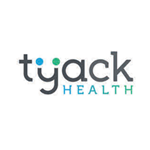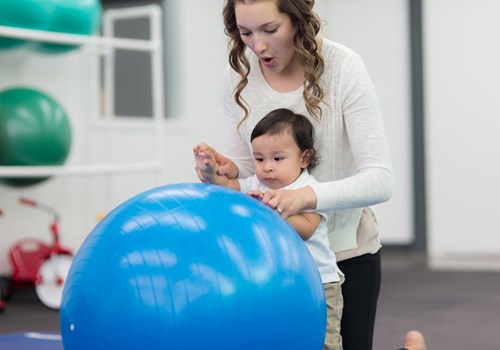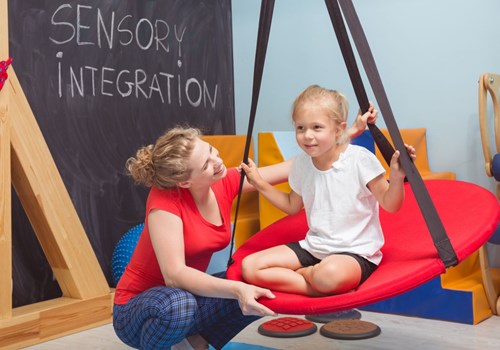


Occupational therapy is used when someone is having difficulty with everyday tasks. It provides support for people who are having difficulties participating in activities they would like or need to do.

Our occupational therapists are an experienced team, who are able to provide support to people of all ages, to assist people in participating in everyday tasks, and to live their life to its fullest potential.
Our therapists provide a comprehensive assessment and identify your strengths and challenges, and identify practical solutions to help you improve your independence. These solutions may include changing the environment, using different techniques, or using assistive equipment.

Our team provides a holistic approach, and with your consent are able to liaise with a range of other practitioners to ensure optimal outcomes. We believe a co-ordinated team approach provides the best outcomes for many of our clients. Our aim is to help individuals become as independent and happy as possible in participating in all areas of their life.


Our therapists are qualified to undertake and advise you on:
Our occupational therapists (OTs):
Fees
Sophie loves seeing children and their families achieve goals that they once thought may not happen. With a friendly, fun and bubbly personality, Sophie is able to build and create therapeutic relationships very quickly.
As an Occupational Therapist, Samantha is passionate about empowering children and their families to achieve meaningful, lasting change by building on their strengths and taking a holistic approach. One of the most rewarding aspects of her work is witnessing those “ah-ha moments” when deeper understanding is shared, opening the door to progress and new possibilities. Creativity is at the heart of Samantha’s approach —she thrives on finding innovative, play-based solutions tailored to each child’s unique needs.
Alisha is an experienced and passionate Occupational Therapist with years of diverse practice across hospitals, communities, schools, and private clinics. Alisha thrives on creating fun, engaging, and meaningful therapy sessions, believing that laughter and connection are central to progress. Moments of hope—whether through a child’s joyful breakthrough or a caregiver’s sigh of relief—remind her why she loves what she does. Committed to continuous learning and teamwork, Alisha stays at the forefront of research and innovative practices to provide tailored support for each client.

What is Sensory Integration?
We access the world through our seven senses: sight, hearing, smell, taste, touch and the two related to movement (vestibular sense and proprioceptive sense)
The vestibular sense is a sophisticated sense in the inner ear that tells us when our bodies are displaced and helps us to orient to movement. The proprioceptive sense provides feedback from muscle movement and joint position, sometimes referred to as the ’body sense’ or ‘body awareness’.
The brain filters, organises and translates the messages from all the senses at any given moment in time. This massive amount of information helps us to focus on what is important while deciding what is unimportant. To behave appropriately and to react according to the demands in the environment, all sensory information sent to the brain needs to be processed and integrated effectively.
Problems with sensory processing and integration create problems in behaviour and in the reaction to demands in the environment. A person can find it difficult to pay attention and to sit still, can be sensitive to textures, can be a picky eater, can enjoy movement excessively or can avoid specific movement.
Poor sensory processing affects many aspects of a person's functioning negatively. Usually it has an emotional component as well and a person might feel insecure, has a poor self image and has issues with socialising and sleeping.
A Sensory Integrative program will address all aspects of sensory processing and work to re-align the integration of the mass of sensory information that is passed to the brain.

We access resources and interventions to ensure the best outcome for each child and family. We believe in:
We provide services under:
Therapy may be able to be provided at your child's school (provided permissions are granted). OT sessions are run on the school premises and fit within the school term, and within school hours. This model not only supports working parents who might find it difficult to secure time off to take their child to therapy sessions, but also greatly reduces the student's time out from the classroom and their learning.
We also offer a school based group therapy program. The following groups are currently offered in our school therapy program:
The group type and focus is tailored to meet the needs of your child. Screening assessment are conducted for new referrals, where student's needs are identified and suitability for group participation is considered. Individual therapy sessions can also be arranged if this is deemed to be more suitable
Department Hours
Please check with reception on 3249 5333 for the times our Occupational Therapists are working, as hours may vary without notice.
Consultation Fees
Health Fund Rebates Applicable.
NDIS
At Tyack Health we can provide therapeutic services under NDIS for participants who are Self-managed or Plan-managed. NDIS appointments are charged in line with the NDIS price guide. For more information see https://www.ndis.gov.au/providers/price-guides-and-pricing#ndis-price-guide-2020-21
Reports
If you require a letter of support or a report regarding your child, please discuss this with your OT. Reports are charged depending on their level of complexity.
Medicare
Medicare rebates can be accessed by children under 15 years with the same medical conditions as above, as long they received a diagnosis prior to 13 years of age.
A referral under this plan can either be for assistance with the diagnosis process (up to 4 sessions), or for treatment after receiving diagnosis (up to 20 sessions). Note that these sessions cannot be renewed annually, and can be used for other allied health services as well as OT (with the total number of services not exceeding 4 and/or 20). The sessions are available for children with Autism or a Pervasive Development Disorder (PDD). Referral under this program will need to be from and eligible consultant Paediatrician or Psychiatrist.
Appointments
If you make an appointment for your child, we recommend 2 appointments of 50min each for assessments and then a feedback session where the outcome of the assessments is discussed with the parents (preferably without the child).
If you are unsure about the way we can help you, you are welcome to make one appointment to discuss your specific needs.
Cancellation Policy
We understand that life is unpredictable and you may not always be able to make your scheduled appointment. If you can’t make an appointment we respectfully request at least 48 hours notice to cancel or arrange for another time.
Missed appointments and appointments cancelled without 48 hours notice may be charged the full consultation fee.